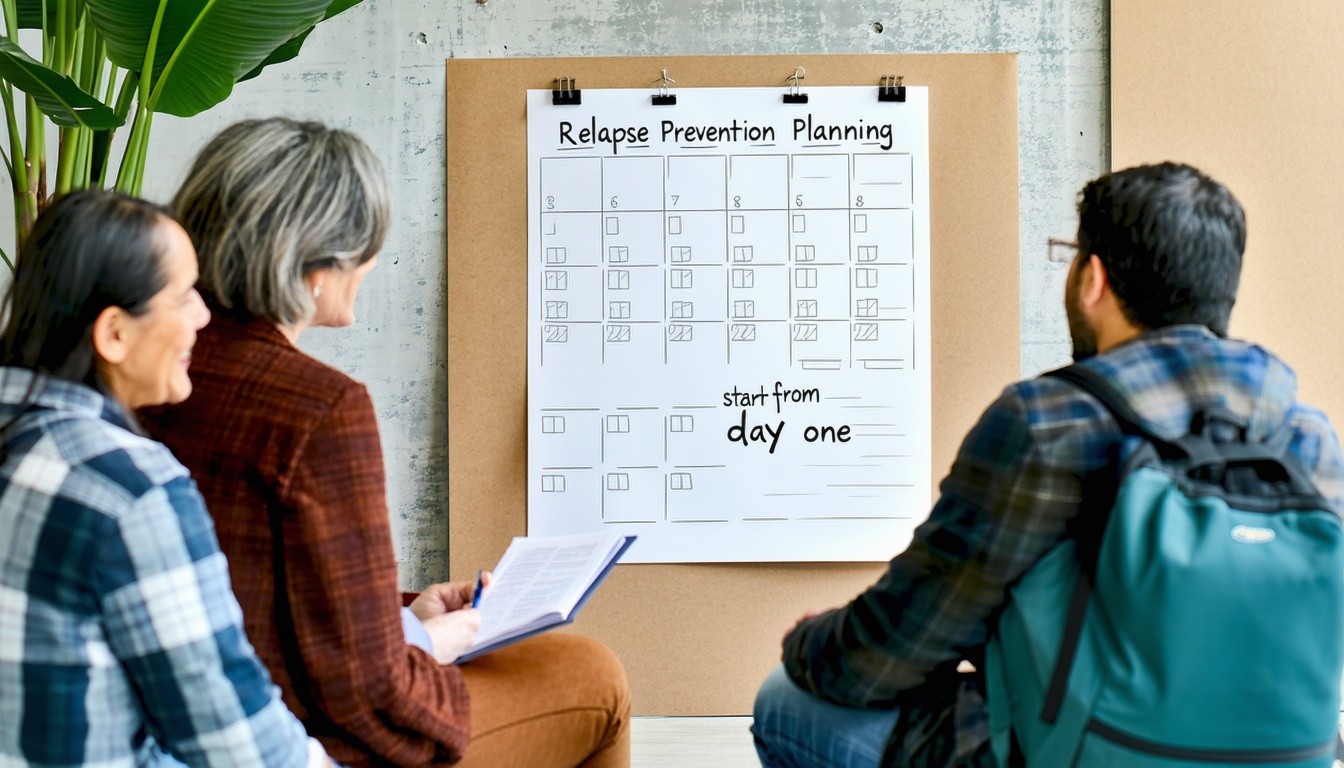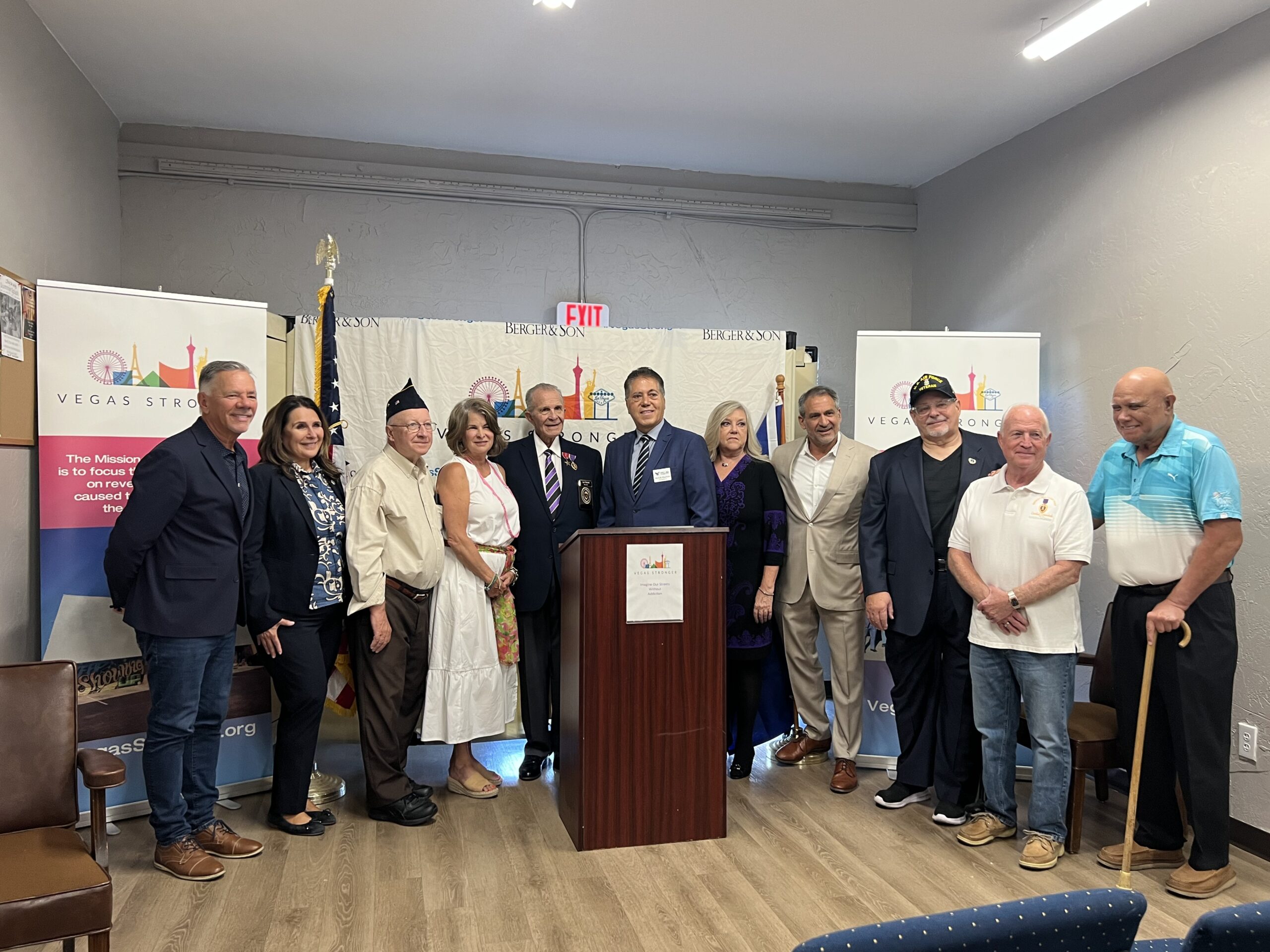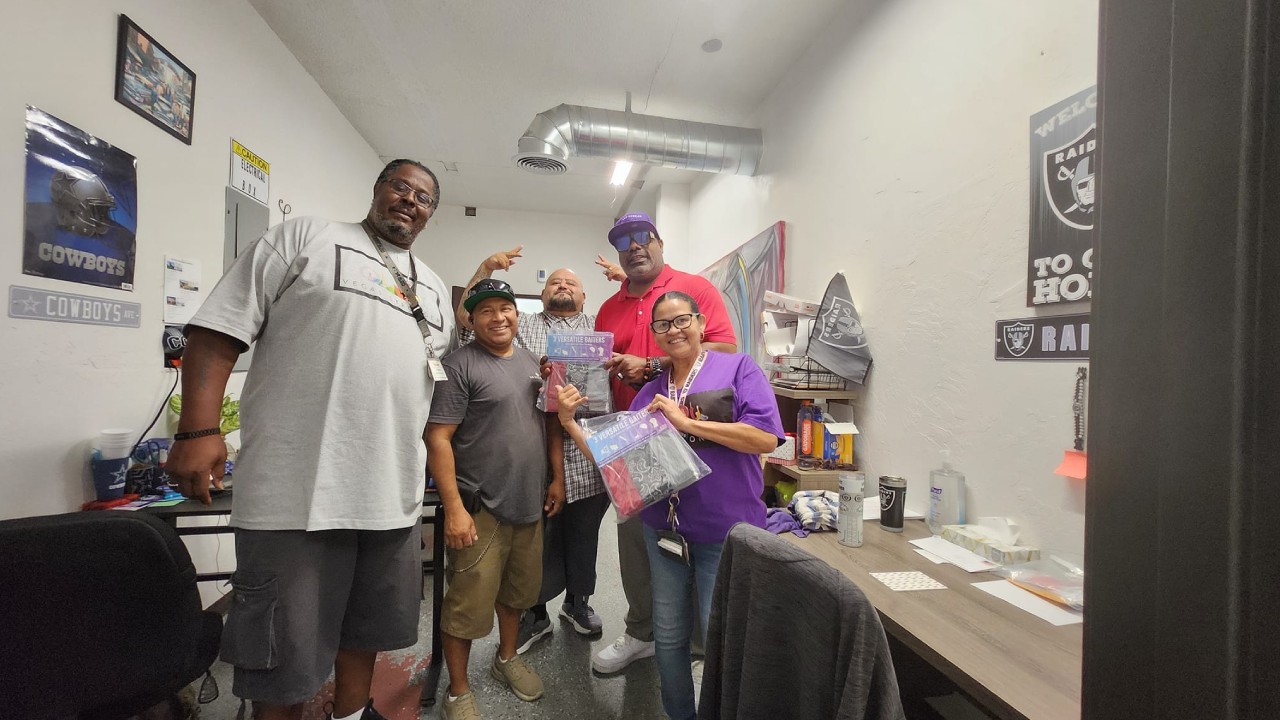Understanding Group Therapy in Addiction Recovery
Definition and Purpose of Group Therapy
Group therapy in addiction recovery involves structured sessions where individuals struggling with substance use disorders engage in therapeutic discussions under the guidance of professional therapists. The primary purpose of group therapy is to provide a supportive environment where participants can share their experiences, gain insights, and develop coping strategies.
Group therapy sessions typically follow a structured format and can include various therapeutic techniques. These sessions are designed to foster a sense of community and mutual understanding among participants, helping them feel less isolated in their journey toward recovery.
How Group Therapy Supports Addiction Recovery
Group therapy provides several critical supports that enhance the addiction recovery process.
Peer Support and Camaraderie
Participants find encouragement and strength by connecting with others who are facing similar challenges. This peer support network can be a powerful motivator, helping individuals stay committed to their recovery goals.
| Benefit | Description |
|---|---|
| Peer Support | Connecting with others who share similar struggles |
| Encouragement | Motivating each other to stay committed to recovery |
| Shared Experience | Learning from each other’s journeys |
Sense of Belonging and Community
Feeling part of a community can significantly impact an individual’s emotional well-being. Group therapy offers a safe space where participants can express their feelings without judgment, thereby fostering a sense of belonging that is often missing in addiction.
| Benefit | Description |
|---|---|
| Belonging | Feeling part of a supportive community |
| Emotional Safety | Expressing feelings in a non-judgmental environment |
| Mutual Understanding | Empathizing with shared experiences |
Learning from Others’ Experiences
Hearing about different coping mechanisms and recovery strategies from peers can offer new perspectives and techniques that an individual may not have encountered otherwise. This collective wisdom is invaluable in navigating the complexities of addiction recovery.
| Benefit | Description |
|---|---|
| Insight | Gaining new perspectives on recovery |
| Strategies | Learning effective coping mechanisms |
| Collective Wisdom | Benefitting from the group’s shared knowledge |
Explore more about the various best practices for group therapy that help in maintaining confidentiality and active engagement. This ensures a professional and effective therapeutic experience.
For a comprehensive understanding of addiction recovery, consider reading about medication-assisted treatment (MAT) and holistic healing in addiction treatment.
Benefits of Group Therapy
Peer Support and Camaraderie
In group therapy for addiction recovery, one of the primary benefits is the peer support and camaraderie that participants experience. When individuals come together with a common goal of overcoming addiction, they find strength and encouragement from one another. Sharing similar struggles creates a bond that can be immensely supportive and uplifting.
- Peer Support: Participants offer mutual support, which helps build a sense of accountability.
- Shared Experiences: They relate to each other’s journeys, reducing feelings of isolation.
- Encouragement: Group members motivate each other to stay committed to their recovery goals.
Sense of Belonging and Community
Feeling connected to a community is essential for those recovering from addiction. Group therapy provides a structured environment where individuals can foster a sense of belonging. This connection can be a powerful motivator and emotional support system.
- Community Feeling: Individuals feel part of a group, combating the loneliness often associated with addiction.
- Empowerment: Feeling understood by others who have faced similar challenges empowers participants.
- Collective Success: Witnessing peers’ achievements fosters hope and determination.
Learning from Others’ Experiences
Group therapy allows participants to learn from the experiences of others. This collective wisdom can be invaluable for personal growth and recovery. Hearing different perspectives and strategies for dealing with addiction can provide new insights and practical approaches that might not have been considered otherwise.
| Experience Type | Benefits |
|---|---|
| Personal Stories | Gain insights from real-life experiences. |
| Coping Mechanisms | Learn effective strategies from peers. |
| Challenges and Triumphs | Understand diverse ways to overcome obstacles. |
Engaging in group therapy offers numerous advantages, such as peer support, a sense of belonging, and opportunities to learn from others. These benefits can significantly enhance the recovery process and make the journey towards sobriety more manageable. For further reading on topics related to addiction recovery, consider exploring articles like the role of mental health treatment in substance abuse recovery or how family involvement enhances addiction treatment success.
Best Practices for Group Therapy
When it comes to group therapy in addiction recovery, there are essential practices that enhance the therapy’s effectiveness and ensure a supportive environment for all participants. Our experience at Vegas Stronger in Las Vegas, NV highlights these best practices that enable individuals to thrive in their recovery journey.
Confidentiality and Trust
Confidentiality is the bedrock of trust in group therapy. Participants need to feel safe sharing personal experiences without the fear of judgment or breaches of privacy. Maintaining confidentiality allows members to open up and engage deeply in the healing process.
- Confidentiality Agreement: All group members should commit to keeping discussions private.
- Clear Communication: Facilitators must reinforce the importance of confidentiality in each session.
| Confidentiality Practice | Description |
|---|---|
| Confidentiality Agreement | Commitment by all members to keep sessions private |
| Clear Communication | Regular reminders by the facilitator about the importance of not sharing outside the group |
Active Participation and Engagement
Active involvement is critical for the success of group therapy. When participants engage fully, they not only benefit themselves but also contribute to the healing of others.
- Encouraging Participation: Facilitators should create an inclusive environment that encourages every member to share.
- Interactive Activities: Use various interactive exercises to keep sessions dynamic and engaging.
| Participation Strategies | Benefits |
|---|---|
| Encouraging Participation | Ensures everyone feels heard and valued |
| Interactive Activities | Keeps sessions dynamic and engaging |
Professional Facilitation and Guidance
Professional facilitation ensures that group therapy is structured, focused, and effective. Trained therapists bring expertise, objectivity, and guidance to steer sessions constructively.
- Qualified Therapists: Leveraging the skills of experienced therapists ensures professional handling of sensitive issues.
- Structured Sessions: Having a clear framework for each session keeps the group on track and focused on recovery goals.
| Professional Practice | Description |
|---|---|
| Qualified Therapists | Ensuring facilitators are experienced and trained |
| Structured Sessions | Maintaining a clear framework for efficient and effective sessions |
Implementing these best practices not only supports the therapeutic process but also strengthens the overall group dynamic. At Vegas Stronger, we emphasize the importance of confidentiality, active engagement, and professional guidance to foster a nurturing environment for all members. For those looking to understand more about specific approaches, our articles on the role of mental health treatment in substance abuse recovery and relapse prevention: strategies for maintaining long-term sobriety provide additional insights.
Group Therapy Techniques
Group therapy in addiction recovery can be incredibly effective when the right techniques are employed. In this section, we explore three prominent therapeutic techniques used in group settings: Cognitive Behavioral Therapy (CBT), Dialectical Behavior Therapy (DBT), and Motivational Interviewing (MI).
Cognitive Behavioral Therapy (CBT) in Groups
Cognitive Behavioral Therapy (CBT) focuses on identifying and changing negative thought patterns that lead to harmful behaviors. When applied in a group setting, CBT allows participants to share and analyze each other’s experiences, promoting a deeper understanding of personal triggers and coping mechanisms.
The group environment provides a platform for members to practice skills such as cognitive restructuring and problem-solving. This collaborative approach helps in reinforcing new, healthier thought patterns and behaviors.
| Objective | Technique | Outcome |
|---|---|---|
| Identify Triggers | Cognitive Restructuring | Better understanding of personal triggers |
| Problem-Solving | Group Discussions | Collaborative solutions and support |
| Reinforce Skills | Role-Playing Scenarios | Improved coping strategies |
Dialectical Behavior Therapy (DBT) in Group Settings
Dialectical Behavior Therapy (DBT) is designed to help individuals manage intense emotions and develop healthier relationships. In a group setting, DBT focuses on four key components: mindfulness, distress tolerance, emotion regulation, and interpersonal effectiveness.
Through DBT group sessions, participants learn to become more aware of their emotions and develop skills to manage them effectively. The group dynamic also fosters a sense of accountability, as members support each other in practicing these new skills.
| DBT Component | Group Activity | Benefit |
|---|---|---|
| Mindfulness | Guided Meditation | Increased emotional awareness |
| Distress Tolerance | Crisis Survival Training | Enhanced ability to handle stress |
| Emotion Regulation | Emotion Identification | Improved emotional stability |
| Interpersonal Effectiveness | Communication Drills | Stronger, healthier relationships |
Motivational Interviewing (MI) Approaches in Groups
Motivational Interviewing (MI) focuses on enhancing an individual’s motivation to change by exploring and resolving ambivalence. In a group setting, MI techniques can be particularly effective, as participants see their peers contemplating similar changes and can find inspiration in each other’s progress.
Group MI sessions involve open dialogue and reflective listening, encouraging members to verbalize their reasons for change. This collective exploration often leads to a stronger commitment to recovery.
| MI Principle | Group Technique | Impact |
|---|---|---|
| Open Dialogue | Reflective Listening | Greater self-awareness and insight |
| Exploring Ambivalence | Group Conversations | Facilitated readiness for change |
| Reinforcing Commitment | Peer Encouragement Sessions | Strengthened motivation |
Incorporating techniques like CBT, DBT, and MI in group therapy sessions can substantially enhance the recovery process. These techniques not only provide practical skills but also foster a supportive environment that is conducive to long-term sobriety. Explore related topics such as medication-assisted treatment (MAT) and relapse prevention strategies to further understand the comprehensive approach in addiction recovery.
Positive Outcomes and Transformative Journeys
The journey of recovery is often marked by significant milestones achieved through group therapy. Here are some of the positive outcomes reported by participants at Vegas Stronger in Las Vegas, NV:
| Outcome | Percentage of Participants Reporting |
|---|---|
| Improved Coping Mechanisms | 85% |
| Enhanced Sense of Belonging | 78% |
| Increased Motivation for Recovery | 90% |
| Reduced Feelings of Isolation | 82% |
| Higher Engagement in Recovery Activities | 88% |
These outcomes are a testament to the powerful role that group therapy plays in addiction recovery. Participants commonly report feeling a stronger sense of belonging and community, which is crucial for sustained recovery.
One individual shared, “Group therapy helped me develop better coping mechanisms. The techniques we practiced together are now a staple in my daily routine. I’ve learned to navigate stress without resorting to substance use.”
Another participant highlighted, “The camaraderie in my group sessions was incredible. Being surrounded by others who genuinely understood my struggles made all the difference. I’ve never felt more connected and understood.”
These transformative journeys illustrate the potential of group therapy in fostering long-term sobriety and personal growth. For more on how group therapy contributes to addiction recovery, explore our articles on relapse prevention: strategies for maintaining long-term sobriety and the role of mental health treatment in substance abuse recovery.
The positive impact of group therapy extends beyond individual benefits, encompassing the collective strength and support of a community united in their recovery efforts.
















